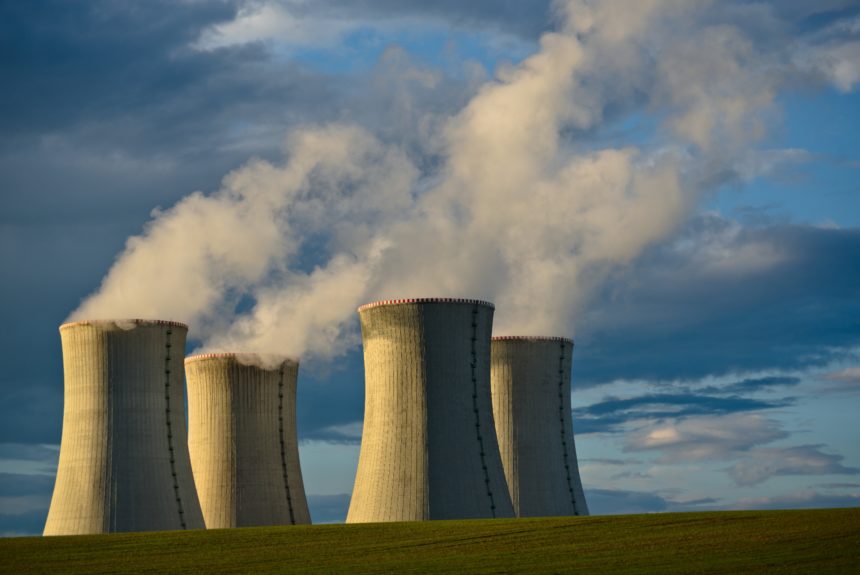The invasion of Ukraine by Russia has been an atrocity. Russia has committed war crimes and dispossessed millions upon millions of people. But Russia has also exposed a backbone in the west that many thought did not exist. From harboring refugees, to supplying arms, to brave volunteers, to a comprehensive set of sanctions, the United States and European nations have reacted to Russian aggression to an extent that was almost unthinkable just months ago.
This resistance extends to energy policy.
Europe is deeply reliant on Russian imports as an energy source. Last year, Europe imported four and a half million barrels of oil a day, sending billions of dollars into the pockets of Russia and its oligarchs. According to Columbia University’s Climate School, Russia is Europe’s most significant supplier of natural gas, sending just over 185 billion cubic meters annually.
>>>READ: California and Germany’s Nuclear Mistakes
Putin’s invasion changed this. The United States pledged to supply another fifteen billion cubic meters of natural gas to European nations, but that still leaves a hundred billion cubic meter shortfall where Russia fills the gap. And even the United States’ pledge is arguably just a token of support, rather than a meaningful one; the administration has made essentially no actual effort to encourage domestic natural gas production.
Moreover, as Russia remains cut off from the global financial network, Putin has demanded that Europe pays for their oil in the beleaguered ruble, though to little avail.
But it’s Belgian nuclear energy that may show the way forward for Europe.
Belgium has seven nuclear reactors, which provide for just under half of the nation’s electricity. Operated by Electrabel, the reactors have been operating, with safety upgrades, since the mid-seventies. In 2003, Belgium passed a law to eventually phase out nuclear energy. Shutdowns, according to the nearly two decade old plan, would begin in August of this year, and conclude by 2025. The reactors would be replaced by natural gas plants, with the gas likely imported from Russia.
With Europe’s energy at risk, and the energy independence of European nations more critical than ever, Belgium changed its tune. On March 18th, the Belgian government postponed the shutdown of its two largest and most modern reactors – supplying about 35% of the nation’s energy – and pledged twenty-five million euros a year to invest in modular reactors. They will remain open until at least 2035.
President Biden and the European Commission’s president, Ursula von der Leyden, meeting in Brussels, committed to “diversify away from Russia, towards suppliers that we trust that are friends and that are reliable.” That commitment, so far, seems to be towards finding alternative sources of oil and natural gas, and towards renewables such as wind.
But as President Biden and European leaders met, perhaps they took a moment to think about how it’s nuclear that keeps the lights on in Brussels. It is towards nuclear that European and American energy policy needs to orient.
In the European Union, there are only two reactors under construction – a small one, in a Slovakian plant from the seventies, and an oft-delayed reactor in France. Meanwhile, nuclear plants are springing up like wildflowers in China, India, and Russia.
>>>READ: Europe Needs a Different Environmental Vision in 2022
What is happening right now is a stopgap. European nations are simply not removing their nuclear reactors, many of which are decades old. Consumer hesitation, regulatory issues and policymaker reluctance are preventing the construction of new ones, and even those would be a many-year long process. In the short term, to wean themselves off Russian gas, Europe needs better storage, more energy efficiency, and, crucially, the Biden Administration to encourage domestic natural gas production to export to our European allies.
In the long term, though, Europe and the United States need to take cues from Belgian nuclear energy and start to make technological advances in clean energy. We need nuclear reactors that aren’t aging relics from the seventies, but rather safe, efficient power sources that use the latest designs. We are dragging our feet on one of the most important tools to free ourselves from the influence of Russia’s pipelines. It’s time for a western renaissance of nuclear power.
Sam Rutzick is a student at George Washington University Law School. His writing has been published in Reason Magazine, the Washington Times, the Salt Lake Tribune, the Washington Free Beacon, and elsewhere.
The views and opinions expressed are those of the author’s and do not necessarily reflect the official policy or position of C3.
